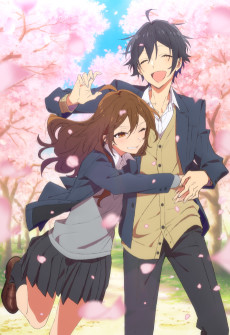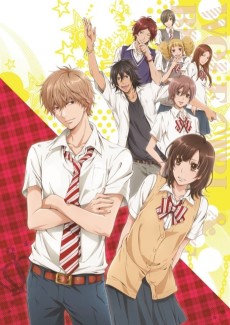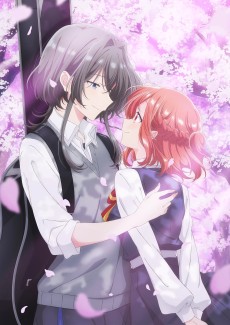HANANOI-KUN TO KOI NO YAMAI
STATUS
COMPLETE
EPISODES
12
RELEASE
June 20, 2024
LENGTH
24 min
DESCRIPTION
Hotaru Hinase is a first-year in high school that has a great family and wonderful friends, but not much luck when it comes to romance.
One day, she happens to see the hot boy from the class next door, Hananoi, get dumped. Seeing Hananoi standing in the middle of a park all alone, Hotaru decides to hand him an umbrella.
That little act causes Hananoi to ask her out soon after.
What does love even mean? What does it mean to be in love? Hotaru is flustered at suddenly being asked out by Hananoi, who has an endless amount of love for the person he loves and wants to do everything he can for them. This is a story about first love between a girl who doesn't understand romantic love and a boy that may be a bit too heavy-handed when it comes to love.
(Source: Kodansha USA)
CAST
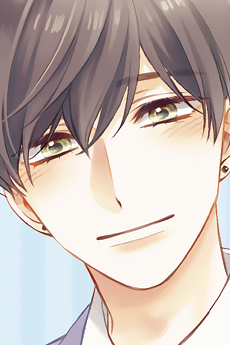
Saki Hananoi
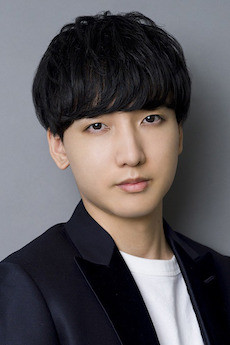
Chiaki Kobayashi
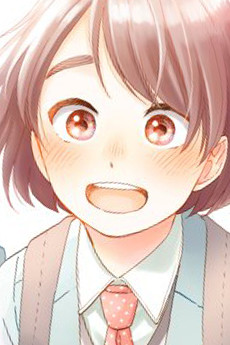
Hotaru Hinase

Kana Hanazawa
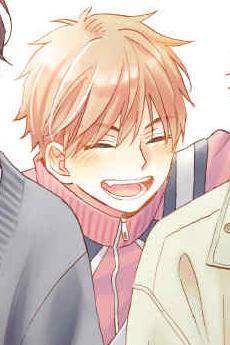
Keigo Kurata
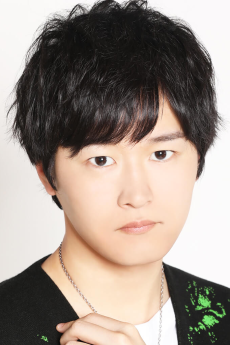
Ryouta Oosaka
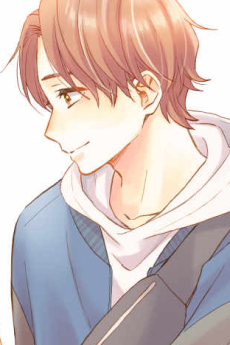
Souhei Yao
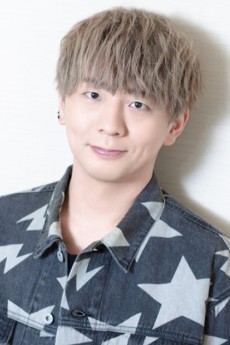
Ryouhei Kimura
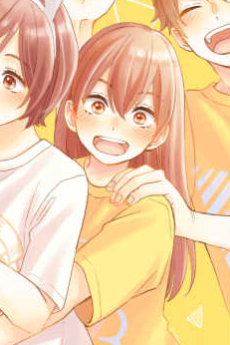
Hibiki Asami
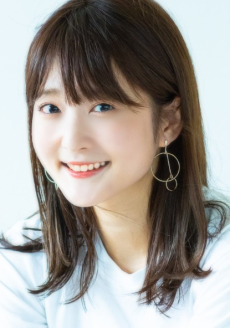
Yurika Kubo
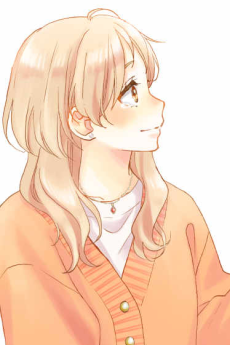
Satomi Satomura
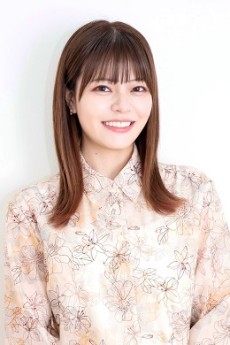
Sayumi Suzushiro
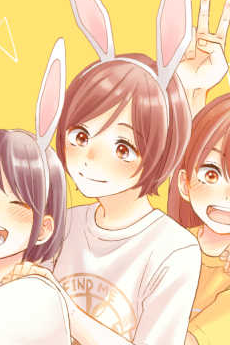
Tsukiha Shibamura
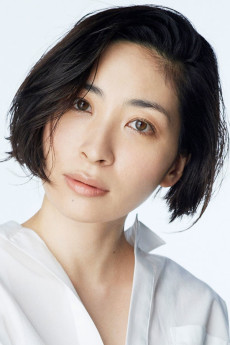
Maaya Sakamoto

Kagari Hinase
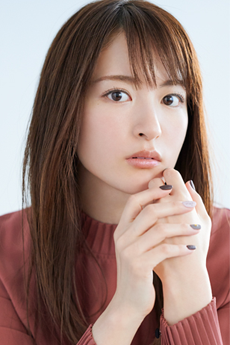
Mikako Komatsu
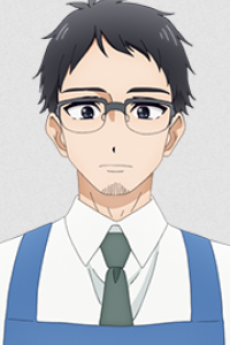
Yukihiro Kuroe
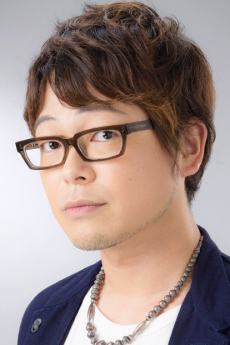
Kazuyuki Okitsu
EPISODES
Dubbed
RELATED TO HANANOI-KUN TO KOI NO YAMAI
REVIEWS

Scheveningen
65/100An ambitious show that explores the idealisation of relationships but doesn't achieve clarity with its aims soon enoughContinue on AniListA Condition Called Love is a rather ambitious show that attempts to explore the idealisation of relationships but does not quite achieve clarity or incisiveness with its aims and ideas. To give credit to the show’s intentions, it is certainly doing something interesting and worthwhile as a reply to a romance genre where many stories gloss over or do not even consider the consequences of having their characters be “hopeless romantics”. Yet it is apt to question if this intention can be clearly understood in the initial episodes by a viewer without access to sources of information outside the text. Of course, it is difficult to lay the sole blame for this confusion on the show. The increasing awareness of critiques against older anime and manga framing extreme acts as romantic has likely led audiences to become more sensitive and skeptical of any overtures that can be construed as “toxic” or even just imperfect. This by itself sows a certain amount of inherent confusion in if the show intends to play Hananoi’s actions straight as unreservedly romantic, or if they are a major flaw for him to work through. However, the show does not take a subtle approach to introducing its themes that might justify some of this confusion as a necessary sacrifice since it opens almost immediately with Hananoi behaving in an extremely intense manner. While that is certainly in keeping with his character and part of the point, there is a lack of an immediate follow up in the narrative that recognises his flaws, even in a vague manner. It results in the intentions of the show remaining unclear and there being no real initial push or goal for the character arcs to deliberately move towards. Even though it becomes a clear deconstruction later in the series, it is far too late to alleviate the reasonable confusion or suspicion from the initial episodes. With A Condition Called Love benefitting from neither subtly nor clarity due to its narrative decisions, it is hard to justify its current structure despite it eventually becoming clear what the show was going for. It also makes it difficult to be emotionally invested in the relationship of our lead characters despite there being sufficient connection and chemistry between them later on. Even though there are interesting ideas and themes on display, it feels like the show rushed to its commentary at the expense of its initial characterisation, leading to a distinctly lopsided experience that is understandably a little hard to love.
The decision to open the narrative by immediately displaying the intense idealisation Hananoi has of a romantic relationship ends up hampering the show in the long run with how it fails to manage audience expectations. Everything about A Condition Called Love’s framing from its art style to cinematography paints it in the vein of a more traditional shojo series. With that comes the reasonable audience expectation of the initial encounter between our leads being meant to establish and sell their compatibility to the viewer on some level. While the show does subvert this expectation thematically with how unnervingly intense Hananoi’s actions are, it does not do so effectively on an emotional level, which then hampers conveying its more complex aim than just being another boy-meets-girl story. The show never commits to truly framing Hananoi’s actions as overwhelming or even scary due to their intensity. Understandably so since it would make it difficult to reasonably justify any continued interaction between him and Hotaru. Yet it also does not effectively establish the impression of a deeply flawed but well-meaning Hananoi it was likely going for. Much of this is down to Hotaru’s accommodating, and perhaps almost naïve, internal narration which leaves her naturally caring and concerned personality feeling more like it is being used as a crutch to soften Hananoi’s image, as many other shojo series are guilty of. There is the immediate suspicion that the show might not be aware of how fanatical his actions actually appear, especially with how soon he is going to such lengths for Hotaru. Or worse, that it is trying to continue the outdated trope of objectively crazy gestures being endearing as long as the other party reciprocates the feelings. The show never fully bites the bullet in its opening episode by having Hotaru respond with clear trepidation to Hananoi, making it obvious she is concerned for him not out of being flattered or moved by his actions but because it has gone past that point and into alarm. The audience still shares some of the blame since their increasing genre awareness has backfired here, creating suspicions where someone with less knowledge might see none or perhaps even understand the show’s intentions right off the bat. Although there would undoubtedly be some viewers who will still fail to grasp the point no matter how clearly it is made, the narrative as it stands does at the very least create understandable doubts.
The show seems distinctly to want to have its cake and eat it too with how it keeps its softer and romanticised framing while critiquing character actions that are directly propped up by said framing in other media. For instance, there are multiple times when Hananoi says lines like “I’m not sure if I’ll be able to hold back” or “I want you all to myself”. While he certainly does not intend for these lines to be sinister or threatening, and Hananoi never acts on them to hurt Hotaru intentionally, the contents and sheer intensity of the words necessarily make it appear that way. The framing around these moments always remains rosy or at least unchanged from the norm, making it seem as if the audience is supposed to view these overtures as romantic thus creating a dissonance. It is almost certain that the show’s objective was to create a more nuanced impression in Hananoi expressing his genuine feelings with benign intentions, yet also having cultivated them wrongly and displaying them in too intense a manner due to his idealisation of love. While the current approach could be argued as subtlety or making the point of how powerful and abusable framing in media can be, it is also less than effective storytelling given that neither the framing of the scenes nor the contents of the text give any clarity to its intentions. In a vacuum, this might not be an issue, or actually be rather fascinating for a viewer who notices it. However, the wider media landscape is one of inherent suspicion surrounding these kinds of dynamics, and whether that climate remains well founded or not, there still should have been some priority given to making things clearer given the unfavourable context. At best, this dissonance creates confusion since the show frames the undesirable actions of Hananoi and those that are appreciated by Hotaru as almost indistinguishable from each other. At worst, it is attempting to leverage the genre familiarity of a viewer to do something more complex, yet it is also doing almost nothing to mitigate how its narrative and framing would appear dubious or exactly like the various flaws the show wants to critique. While unfair to foist the lion’s share of responsibility for this onto the writer, the lack of clarity in the goals of the show and managing audience expectations is still something that detracts from the experience regardless of the cause or intentions behind it. Even though holding this against the show as incompetence or a failure is going too far, it is also hard to overlook or ignore the effect it has on creating an unnecessarily difficult first impressions.
Unfortunately, the rapid escalation and directness of the first episode is never quite paid off either. At least not in a timely manner within the first half of the season. There is no realisation in Hananoi or Hotaru’s internal narration, much less a scene between them, that firmly establishes there was even a problem somewhere in that interaction or that something needs to change. This is not to say that the show needs to spell out its core conflict so blatantly like a thesis statement or that the characters need to realise the entirety of the problem so early on. However, there is a lack of any acknowledgement, even at the preliminary level of self-doubt with Hananoi wondering why his actions did not seem to work or Hotaru wondering what would drive someone to act like that. Not only does this sustain some of the earlier confusion with the idea that Hotaru might be unconditionally accepting of Hananoi’s behaviour, but it leads to none of their following growth feeling deliberate for quite some time. Much of it appears more coincidental in that Hananoi stumbles into change due to circumstance instead of him taking a more active role in the attempts. That or it creates the unintentional impression of the narrative being excessively accommodating of his flaws since neither the characters nor the framing of the show offers much pushback for a while. The show does later establish the idea of relationships necessarily changing a person more subconsciously, which does explain the lack of direct questioning from its characters. Yet if the show was intent on exploring this idea, it could have shown both deliberate and unconscious changes people make for their significant other, both for good and for ill.
Of course, a major part of A Condition Called Love involves tackling the idea of it being difficult to change without the help of someone else. In that area, the latter parts of the show execute this idea in a compelling and tender way with how Hotaru accommodates enough of Hananoi’s feelings to validate him while presenting him ways and opportunities to improve for both their sakes. It is certainly sweet and deeply endearing how she chooses to work with him through his flaws and sees through them to his real qualities and intentions instead of backing away because it is overwhelming. While some degree of this idealisation is still appropriate given this is ultimately entertainment, the narrative still creates the impression that Hotaru is perhaps doing too much of the work in this relationship. The attempt to set up and justify this dynamic by exploring the redeeming qualities of Hananoi is handed to the episodes between the show’s opening and its mid-season point. However, there is a lack of an active direction in the characters or questions for them to address in these episodes leaving it feeling like they are indulging Hananoi’s flaws for a substantial period of time. It particularly hurts the suspension of disbelief since most displays of his behaviour during these episodes come off as being unbelievably flagrant with only a minor narrative payoff in a fairly direct “save the cat” moments to counterbalance it. There is plenty of hinting at other compelling parts of his characters with things like Hananoi being shown to live alone, but they all constantly resist telling the viewers anything concrete. It is a pity since we only find out the full extent of Hananoi’s beliefs about love in the latter half of the season when it could have been something he would declared up front given his romanticism. It would have more effectively given the audience and Hotaru something to mull over while not giving too much away since it still preserves the mystery of how or why Hananoi came to have these views. His beliefs are still easy to infer from both his actions and scattered statements, but the aforementioned problem with framing makes it difficult to be certain that Hananoi’s views are actually something the show is preparing to deconstruct instead of just being outdated romantic platitudes.
Due to all of this, the show ends up both somehow diving too fast into its themes yet feels like it is beating around the bush because of the unclear narrative direction in the first half of the season. The current narrative structure has the audience get to know what makes Hananoi tick only after the initial shock of seeing how intense he can be in the first episode. This leaves the series feeling like it was lacking set up with how it instantly and rawly showed Hananoi’s character as opposed to doing something more subtle where his overly intense romantic side came out after more build-up and peeled back a “normal” or even charming surface level demeanour. Yet the show also does not feel as if it is benefitting from this initial bold decision since it is rather passive in its follow-up of showing more of Hananoi’s characters and redeeming qualities, making it almost feel like a retroactive justification. This places a great deal of strain on the audience since first impressions of him, besides being confusing, are starting from a relatively low point. Rearranging the narrative to have the initial interactions and relationship with Hananoi be more “conventional” and only show its more extreme side in perhaps the second episode would likely produce a more subtle approach that could convince more viewers to continue with the show. At the very least it would have more directly clarified the narrative was aware of how Hananoi appeared if it switched up its framing. Yet it would also be a difficult task given that it would be drastically retooling the source material and potentially change the tone of the show too much if not done well. At the very least they should have perhaps noted his kindness to strangers sooner to give a more compelling reason for Hotaru to initially see something in him beyond seeming almost morbidly intrigued by his outlook and behaviour.
All this begs the question of how much the first impressions of the characters mattered and or if it was the confusion with intentions that made it difficult for viewers to become invested. It was always going to be a difficult sell given the show was going for a male lead that is deeply flawed, and to a degree even off-putting, in ways that feel perhaps too real or close to home. Especially so with current trends and expectations around romance anime to have immediately likeable, or in some cases almost flawless, male love interests to heavily play into the wish fulfilment element. Whether it is fair for an audience to condemn a show over such surface-level elements and preconceived notions aside, it was always going to be an uphill battle to convince an audience of something that appears like a “toxic” romance or “I can fix him” narrative. The structure of A Condition Called Love certainly does not do itself any favours either with this problem nor do something later in its narrative that justifies having to suffer this rough opening for the sake of some other compelling idea or moment.
The difficult initial impression is certainly a pity since the latter half of the season has some compelling chemistry and character moments between Hananoi and Hotaru. The show convincingly shows that despite their very different ideas and feelings about the concept of love, beneath that they have a lot in common in how they wish they could treat and connect with others. It eventually does reach the point (though perhaps not soon enough) where Hananoi’s abrasive less-than-ideal beliefs and behaviour become palatable, if not interesting and compelling in their complexity because the audience is assured that he is aware of it and in the process of changing. The show still keeps to it being a difficult process to undo such core ideas about how love should be, and one that does not always succeed on the first try. But the show still gives it a convincing pace of progress and a strong emotional punch with how his growth interacts with Hotaru’s own journey. There is also something moving about seeing someone like Hananoi who has only idealised romance in the abstract receiving genuine affection for the first time. Even more so that he struggles to earn it and that it comes in a form different from what he imagined. Even then, the hidden childhood connection trope revealed later on is still hard not to find cliche. And despite the narrative establishing Hananoi's inability to hold even normal friendships regardless of gender, the narrative still does not seem interested in fleshing out Hananoi's non-romantic relationships the minimal amount required to make him feel like a more complete character. With that, it is hard to feel that the show is excellent even when giving it the benefit of a complete blind eye to its less-than-ideal opening. It certainly would be better, even good, with that handicap, but still does not leave itself without notable flaws that might justify such a drastic benefit.
Overall, it is impossible to offer a great deal of praise for A Condition Called Love given how understandably confusing its opening was and how long it takes for all its pieces to fall into place. It is hard to give the show a 7 out of 10 with the difficulty in feeling emotionally invested in the characters during the first half of the season and how that dampens some of the later character moments since the audience connection with them is not as strong as it ought to be. Maybe a viewer who goes in forearmed with knowledge of the show’s intentions might be able smooth out the initial rough patches such that it rises to an 8 in their eyes. But that is not a reasonable request of most audience members since a text should be self-contained in conveying its objective. Yet something like a 5 or even 6 feels far too harsh since there are plenty of laudable and interesting things being executed when it comes to interrogating ideas around the idealisation of love and what it means to different people. Even with my personal preference for ideas and themes being the most compelling elements of a show, it is still impossible not to notice how hard it is to feel emotionally invested or moved by the characters due to the rough opening. With that, a 6.5 out of 10 feels like an apt score. It is painful to give it such a low score, especially because much of the criticisms against the show seem to involve misconstruing the narrative’s intention with Hananoi, deliberately or not, or even just flat out refusing to entertain the idea of a flawed character. But it is simply too hard to overlook how the show did not do many favours for itself in its opening and how that might be the reason it is missing the spark that really grips and draws in the viewer into being invested in its characters.

Bropix
35/100I have seen better romance in porn.Continue on AniListHananoi-kun to Koi no Yamai aka A Condition Called Love is a Shojo-Romance manga written and drawn by Morino Megumi. It was adapted into a 12-episode anime by East Fish Studio, a fairly new studio with no notable previous works.
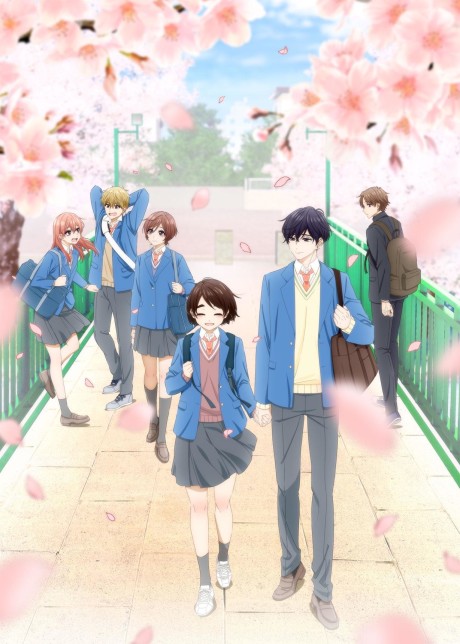
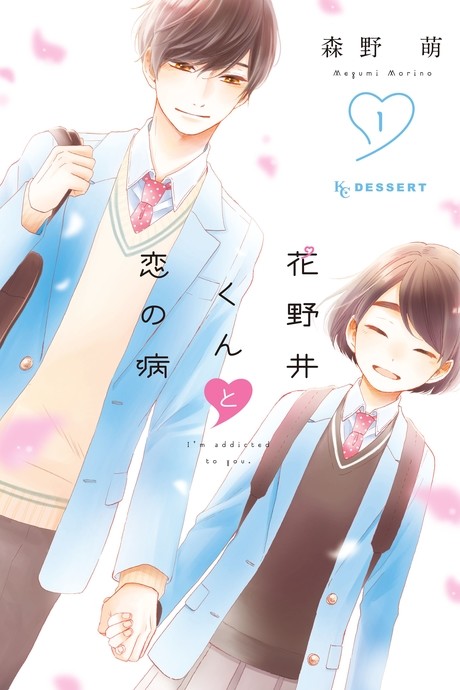
I have not watched many Shojo anime, but the ones that I have, I have enjoyed thoroughly. This being the Shojo-Romance of Spring season, I was curious how it would compare to Winter season's A Sign of Affection.
Sure, the production quality is not up to par from the trailers, but surely the story is good right?
The story follows Hinase Houtaro, who gets asked out on a trial date by Hananoi Saki. The latter falls in love with her at first sight when she hands him an umbrella. Initially, she rejects dating him, but later accepts his offer of a trial dating. She hopes doing this will allow her to experience genuine romantic love for the first time.
The main couple sucks! The character writing and the relationship, are written in such a contrived way that any pushy scene, sprinkled with romantic sappy music gives off the illusion that the scene in question is romantic. But the reality is that it is forced, undynamic, bland, and leaves you feeling uncomfortable.
Hananoi is creepy, pushy, clingy, and often behaves like a Yandere. His girlfriend is the only thing on his mind and is rude to everyone else.
A character with bad traits IS NOT a bad writing decision. When someone writes a character with flaws, especially glaring ones. They are usually addressed or the character has an arc to grow out of them and mature.As the anime goes on his behavior improves, and his backstory elaborates more on his characterization, but the creepy behavior is never addressed properly and is ignored by the cast for the simple reason being that he is hot.

Hinase despite being 16 years old, has the mental age of a 10-year-old. She has no idea what love is supposed to mean and is scared she will never fall in love. She lacks social awareness, is incredibly naive, and is very easily exploitable. Which Hananoi indirectly takes advantage of.
In the first episode, she loses a hair clipping, Hananoi goes out of his way to search for it for hours and almost gets frostbite. If a close friend or lover did this, it would be a romantic scene of consideration. But in episode 1, Hananoi is nothing more than an acquaintance. But Hinase does not view it as creepy or even weird. She cannot even comprehend that someone having a shrine of you, the week you start dating is weird.
Because the couple is written as they are, you can have any forced scenes imaginable. With no good chemistry and bottom-of-the-barrel writing, you have scenes like when Hananoi picks up and embraces Hinase in the first few episodes. To the viewer, it is laughably forced, but to the characters, it works because Hananoi is clingy and Hinase does not know any better.
Other than the bad romance, this anime is so boring. You have scenes like the characters staring into each other's eyes that drag on, lots of yapping about feelings, and school romance cliches with no special execution.
The production is subpar.
If some of the scenes were directed better, maybe my stance on the series would be different, but what we got is what we got.
The art style is plain, and the animation is limiting... there were several animation errors: my favorite is when you had a scene of Hinase greeting her boyfriend while wearing gloves and then in the next scene, she is not wearing any and complains how cold her hands are.
Hanazawa Kana is an amazing voice actress, but her voicing Hinase was a miscast. Such a cheerful, full-of-personality voice is inserted on an overly plain girl. I rarely if ever complain about Japanese voice acting. The OSTs are fine, but they overuse one OST whenever there is a slightly romantic scene occurs: whenever they embrace each other or exchange turd pics, you hear it all the time. The ending song is pretty nice.
A Condition Called Love is a laughably bad romance. Along with Unnamed Memory and Metalic Rogue, it is one of the worst anime of 2024.

LikosTerapagos
100/100A Condition Called Love. The good the bad and the ugly.Continue on AniListThis is going to be one hell of a review.
Let’s get started, then, shall we?
A Condition Called Love seems like quite a generic romance anime at first. Some would say it's quite bland and somewhat boring; some would say it's problematic (I will explain why this is not the case later).
So, what’s good about it? I may be biased, but I think it's a solid anime. The characters are developed as much as they realistically can be in a 12-episode, 1-seasoner. Hinnase Hotaru is a character I find quite relatable. Despite her not being trans-coded in any way, she feels like a character I can see myself in. Shy and bad at romance, at the start she never had any interest in it, as she says blatantly many times. I personally headcanon her as demisexual, meaning you need a close bond with someone in order to fall in love, something that is indeed shown in the show. It took her 6 whole episodes to actually tell Hannanoi Saki that she liked him, not even that she loved him. Some may say that's a bit slow when the whole premise is "romance anime," but I think it's better than rushing into love-at-first-sight type shit. It's also clear to understand who is who; I understood who everyone was in my initial watch every week during its airing, something I can’t say for other romance anime I watch. And yes, this includes the name-switching between last and first names as they do in Japanese. When Hotaru does fall in love with Hannanoi it is extremely wholesome.
So, what's bad about it then? Well, a big issue is Hannanoi being abusive in some ways. While it can seem this way, he is nothing more than protective of his "soulmate." Hannanoi, from a young age, had an, let’s just say, iffy relationship with his parents, and he craved someone who would love him the way that they should. He developed a crush at a young age, and when the events of episode 1 happen and he realizes that it's the same person from when he was a kid, he knew it must be fate and protects this person no matter what. Yes, the pacing can indeed be a bit slow, but like I said, that is a positive in my eyes. The anime also notably changes things about the characters compared to the manga. The anime itself, however, isn’t made worse by this unless you go in expecting a 1:1 adaptation of the manga. On the plus side, they don't skip any chapters in the anime, so I think the changes are evened out in a way.
Should you watch this? Absolutely! If you enjoy romance anime's this is 100% one i would recommend. The story can be a bit confusing however i still think it's a solid show all things considered.
Well, that's my probably biased review of A Condition Called Love, aka Hananoi-Kun to Koi no Yamai.

SIMILAR ANIMES YOU MAY LIKE
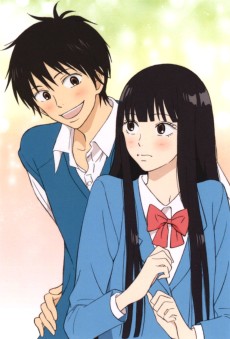 ANIME ComedyKimi ni Todoke
ANIME ComedyKimi ni Todoke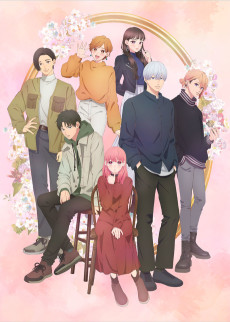 ANIME RomanceYubisaki to Renren
ANIME RomanceYubisaki to Renren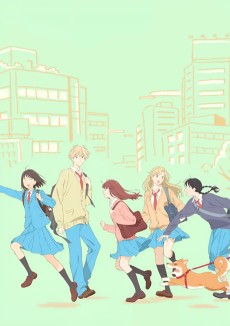 ANIME ComedySkip to Loafer
ANIME ComedySkip to Loafer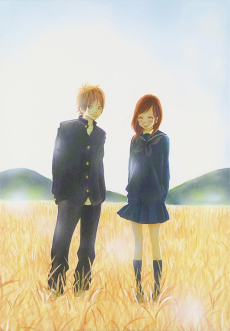 ANIME DramaBokura ga Ita
ANIME DramaBokura ga Ita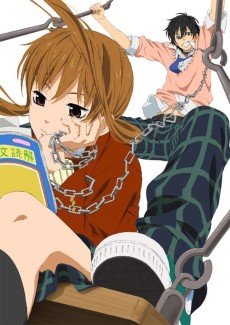 ANIME ComedyTonari no Kaibutsu-kun
ANIME ComedyTonari no Kaibutsu-kun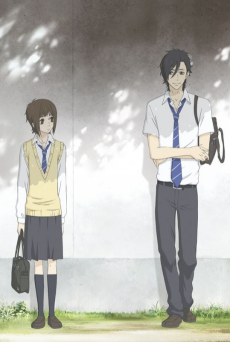 ANIME DramaSukitte Ii na yo.
ANIME DramaSukitte Ii na yo.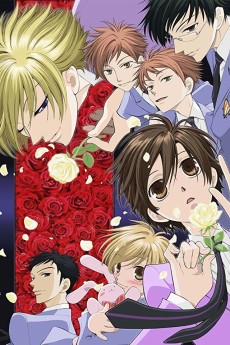 ANIME ComedyOuran Koukou Host Club
ANIME ComedyOuran Koukou Host Club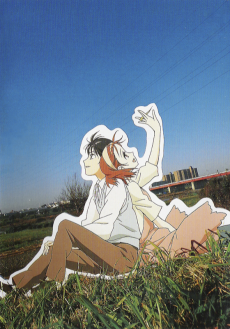 ANIME ComedyKareshi Kanojo no Jijou
ANIME ComedyKareshi Kanojo no Jijou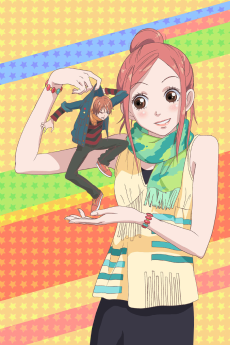 ANIME ComedyLovely★Complex
ANIME ComedyLovely★Complex
SCORE
- (3.3/5)
TRAILER
MORE INFO
Ended inJune 20, 2024
Main Studio East Fish Studio
Trending Level 3
Favorited by 664 Users
Hashtag #花野井くんと恋の病



